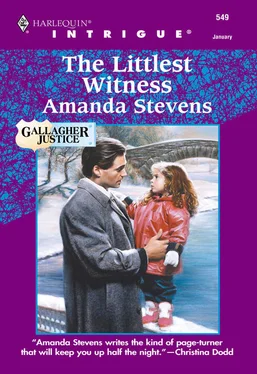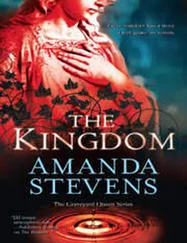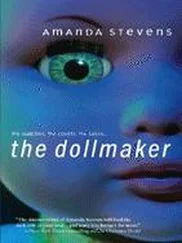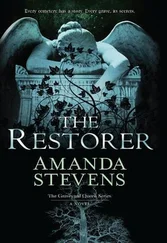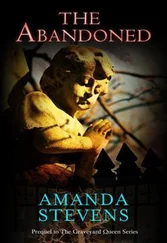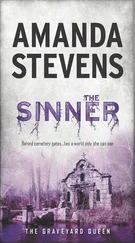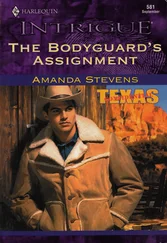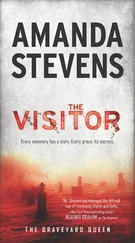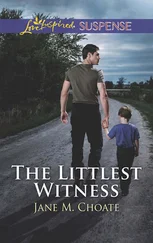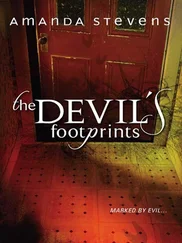“Fairly accurate,” McGowan told him. “He says he’d just finished watching an old episode of ‘Hill Street Blues,’ which comes on at eleven, but the closing credits hadn’t yet run. He lives with his elderly mother. He says she can corroborate his story.”
“How soon did you respond?”
“Torecelli and I were on the scene within ten minutes after we got the call from dispatch. We secured the area and radioed for backup.”
“The manager couldn’t identify her?”
McGowan shook his head. “Claims he never saw her before tonight. She’s not a tenant, and he doesn’t know how she got into the building, unless someone buzzed her in. The outside doors are always kept locked.”
That was true, Thea thought. But a policeman worth his salt knew how easy it was to obtain entrance to almost any unmonitored building. If someone wanted in badly enough, all he or she had to do was wait around until someone was either coming or going and slip through the unlocked door, usually unnoticed. Crooks did it all the time.
And so did murderers.
Thea shivered as she studied Detective Gallagher’s grim countenance. His gaze traced the angle of the building, studying the windows that faced the street. “What about eyewitnesses?”
“None so far. No defense wounds, either, that we could see. We bagged her hands in plastic because of the rain.” Thea knew that normally the police liked to use paper bags, because the lack of air with plastic could alter the evidence. But that was something she didn’t want them knowing she knew.
In fact, the less any of them knew about her the better, especially Gallagher. Thea had a bad feeling about him. A very bad feeling.
He turned and observed the street again, watching for a few minutes as the crime-scene unit finished taking pictures and then began scouring the ground around the body for trace evidence.
He glanced at Thea, then at McGowan. “Who’s she?”
“She lives in the building. Says she was just getting home from work.”
Gallagher nodded vaguely. “Might as well chalk the site when CSU finishes, although it won’t do much good if the rain doesn’t let up. I’m going up to the roof. Let me know when the coroner gets here. Establishing time of death is going to be a bitch in this weather.”
McGowan nodded and took off, leaving Thea standing alone to face Gallagher. She hoped he’d just go up to the roof and forget all about her, but when he turned and started toward her, she saw in his eyes that he had no intention of letting her get away so easily.
“I’m Detective Gallagher.” His gaze was direct, penetrating. If he noticed her trembling, Thea hoped he’d blame the cold. “And you are?”
“Thea Lockhart.”
“Officer McGowan said you live in the building, is that right?”
She nodded. “I was just coming home from work when he stopped me.”
“You work around here, Miss Lockhart?”
“It’s…Mrs. I’m a waitress at a diner near the university. I already gave this information to Officer McGowan.”
The detective’s piercing gaze met hers. “You weren’t home tonight?”
Thea shook her head, shoving her hands even deeper into her pockets. “I’ve been away since before seven o’clock this morning. I didn’t see anything.”
“No strangers lurking around the building lately? No loud arguments, anything like that?”
“No, nothing unusual.”
Gallagher nodded almost absently. “I wonder if you’d mind taking a look at the body. See if you can identify the victim.”
The request was courteous enough, allowing her to decline if she wanted to, but Thea knew she had no real choice. No matter how much she didn’t want to look at that poor dead woman, she mustn’t do or say anything that might make Detective Gallagher suspicious.
She nodded and followed him over to the victim. The woman was lying on her back, her face surprisingly unscathed from what must have been a horrendous fall. But as Thea looked more closely, she saw the cuts and the terrible bruising that gave the body an almost ghoulish appearance. Her arms and legs were at strange angles, too, the bones undoubtedly shattered.
“I’ve never seen her before.” But Thea had second thoughts almost at once. There was something vaguely familiar about the woman, but she couldn’t place her. Which was good. At least she didn’t have to tell an outright lie.
As if sensing her hesitation, Gallagher pressed, “You’re sure?”
She could feel his gaze on her and she tried to suppress a shudder. “I don’t remember seeing her around here before.” Thea paused, then couldn’t resist asking, “Do you really think she committed suicide?” Jumping from a building seemed like such a ghastly way to die, but then, so was a bullet to the heart. A sick feeling rose in Thea’s throat, but she swallowed it away as she glanced up at Detective Gallagher.
His gaze narrowed on her, and she thought for one heart-stopping moment he might have recognized her. Then he said, “Suicide’s a possibility. We’ll know more when we’ve done a thorough search of the area. Right now you’d better get in out of this rain. We’ll be in touch if we need you.”
Alarmed, Thea started to ask why he would need to contact her again, but then realized he and the other officers would begin almost immediately the grueling work of talking to everyone in the building, searching for potential witnesses. Goyakod, Rick had always called it. Get off your ass and knock on doors. He would have been a good cop if he hadn’t been dirty.
But Thea wouldn’t think about that now. She’d become an expert at compartmentalizing her emotions, and right now all she would allow herself to concentrate on was getting away from Detective Gallagher without arousing his suspicions. She was desperate to go inside and check on Nikki.
She took the card he handed her, trying to control the trembling in her hands. But he noticed and said softly, “It’s rough when you’re not used to it.”
If you only knew, Thea thought, but aloud she said, “I’m okay. I just need to be inside, out of the cold.”
He nodded. “If you think of anything that might help, call me at that number.”
Thea stuffed his card deep into the pocket of her coat, knowing all the while that Detective Gallagher would never get a call from her, no matter what. He was a cop, and that was all she needed to know about him. His badge made him one of the enemy.
SHE SEEMED AWFULLY NERVOUS for a bystander, John thought as he watched her at the front door of the building.
She dropped her keys on the stoop, and even from his position several yards away, he could see how badly her hands shook as she bent and picked them up. She started to insert her key into the lock, but then, realizing the door was already unlocked, she hurried inside. A pale blue scarf hid her hair while the oversize coat she wore wrapped her from neck to toe.
But even bundled up like that, John could tell she was a small woman. Petite, he supposed, would be the word. Her thin face was pale and translucent, her features—dark brown eyes, slightly crooked nose, full lips—almost fragile-looking.
There was something about her, apart from her obvious attractiveness, that intrigued him. She had the demeanor of a woman who had been badly frightened and was trying her damnedest to hide it. But if she didn’t recognize the victim, what did she have to be scared of?
His inherent distrust was working overtime tonight, he decided, scowling. A lot of people were nervous around the police. Maybe the real reason Thea Lockhart triggered his distrust was that she reminded him a little of his ex-wife.
Meredith hadn’t cared for cops, either. At least that was what she’d said the night she walked out. But then two months later, she’d married another one, leaving John to conclude that it was one cop in particular she hadn’t cared for. Even though they’d been divorced for nearly two years, her betrayal still rankled.
Читать дальше
